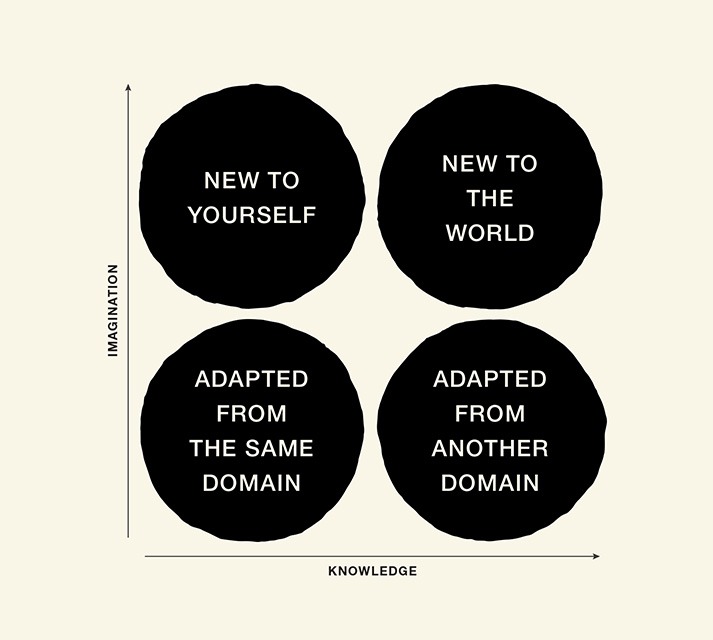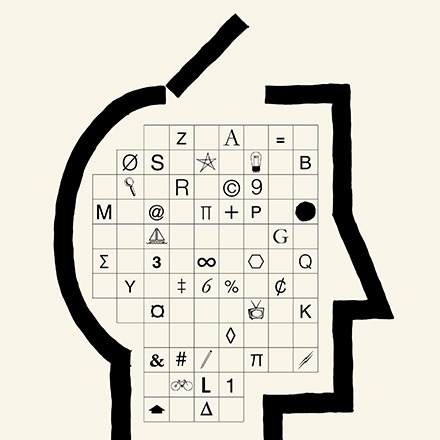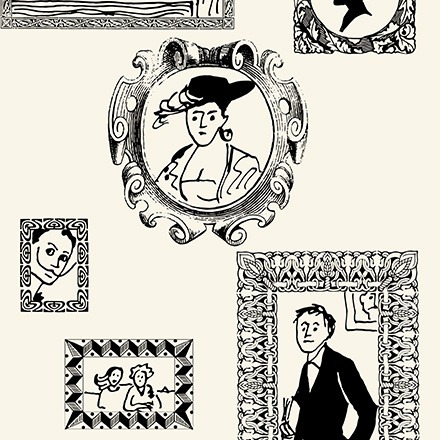The Rules of Genius #29: Invest in your originality
The ability to produce original work is a rare and valuable asset. It lies at the heart of innovation, strategic differentiation, and societal progress. It imparts a quality of “never-before-ness” that can command attention, fill voids, and create wealth. By definition, you can’t be original by copying an original. You have to start from a different place.

Originality doesn’t come from factual knowledge, nor does it come from the suppression of factual knowledge. Instead, it comes from the exposure of factual knowledge to the animating force of imagination. Imagination is the ability to conjure mental images, sensations, or concepts without perceiving them through the senses. Everyone is born with this ability, but the genius is a person who cultivates it, applies it, and invests in it. Imagination is a learnable skill.
Depending on the quality of your knowledge and the level of your imagination, originality can fall into four quadrants: 1) ideas adapted from the same domain, 2) ideas adapted from a different domain, 3) ideas that are new to yourself, and 4) ideas that are new to the world
If you have a little knowledge and a little imagination, you might be able to borrow an idea from a competitor and adapt it for your own purposes. While not truly original, it can nevertheless contain enough freshness to get the job done. You can always take comfort in Voltaire’s claim that “originality is nothing more than judicious plagiarism.”
But let’s say you have a bit of experience, and your subject knowledge is fairly broad. By applying a small amount imagination to your larger knowledge base, you might be able to adapt an idea from a different domain—another industry, discipline, or culture. In this case your originality would be of a higher order, less like plagiarism and more like appropriation.
Or maybe you have much less knowledge, but a well-developed imagination. You might be able to invent an idea you’ve never encountered before. Although others may have invented the same idea without your knowing it, the ability to imagine “new to you” ideas is the first step towards being an original thinker.
As you accrue more knowledge and you exercise your imagination with deliberate practice, “new to you” can become “new to the world.” At this point you’ve seen enough to know what has and hasn’t been done, and inventive enough to fill the gap with a surprising idea.
Originality is more than judicious plagiarism. It’s the ability to dream, to disassociate your thoughts from the linear and logical and end up someplace new. And like many skills that were once thought to be inborn, it must be learned.
Next week: Learn strategically.
How you learn is more important than what you learn
The Rules of Genius is now a book with a bonus section called “How can I matter?” that includes 10 essential rules. Buy here.

